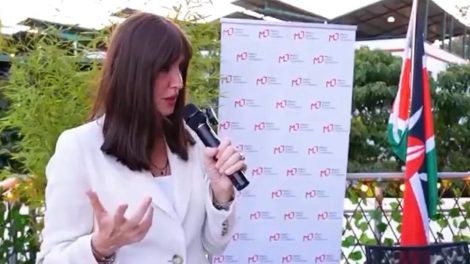Brussels v Budapest. On Sunday, the European Commission proposed freezing roughly €7.5 billion of Hungary’s EU funding over corruption concerns. The long-awaited development came just days after the European Parliament had decided the country was no longer a full democracy – but rather an “electoral autocracy” – and marked an escalation in the yearslong rule-of-law tussle.
CC: Rome. With Italy a week away from voting, the issue is reverberating in the electoral campaign. Especially on the centre-right coalition – which is expected to easily win Sunday’s vote – since Matteo Salvini’s League and Giorgia Meloni’s Brothers of Italy stood by their historical ally, Hungarian PM Viktor Orban, by voting against the EP’s motion.
- Silvio Berlusconi’s Forza Italia, the third biggest member of the centre-right coalition, voted along with the majority of the EP. Does this rift foreshadow wider divisions in Italy’s next government? Let’s delve into their differences.
Salvini: no surprises there. The Hungarian PM “was freely re-elected by the Hungarian people,” said Mr Salvini, who’s a longstanding admirer. “It’s called democracy… and they’re supposed to love and respect the people’s will in Brussels.” He also remarked on his enthusiastic approval of Mr Orban’s policies, especially pro-family laws.
Meloni: justifying with unity. Ms Meloni, too, highlighted that the Hungarian PM had been chosen by the people, thus shrouding his illiberal slide in a veil of legitimacy. However, she cast her party’s choice as driven by the desire to bring European nations closer together rather than push them apart.
- “We cannot give allies to our adversaries,” she told Rai, voicing her worry that such developments risk pushing Budapest further into Moscow’s embrace.
- Still, her siding with Mr Orban casts doubts over her repositioning as a moderate, mainstream, conservative and Euro-Atlantic party, given his historical criticism of the West and his closeness to Vladimir Putin’s Russia and Xi Jinping’s China.
- Crucially, US President Joe Biden did signal his lack of appreciation for Mr Orban by not inviting him to last year’s Summit for Democracy. As for this year’s, the spokesperson for the Department of State Ned Price recently told reporters it’s “too early” to decide.
Berlusconi: the European trench. Forza Italia, on its part, reaffirmed its distance from Mr Orban’s line and membership of the European People’s Party. “We have always defended the rule of law, democracy and freedom,” said the party’s national coordinator, Antonio Tajani.
- Mr Berlusconi went even further. While speaking on Rai 3, he said that Forza Italia would act as the “guarantor” of the coalition’s Euro-Atlanticism and would not remain in a government that did not stand by these values.
- His party is crucial in making the coalition more palatable to moderate voters and the Euro-Atlantic establishment. If his membership falters, Ms Meloni and Mr Salvini may face hard times ahead.
From euro-fringe to mainstream. The League and BoI’s choice to side with the illiberal leader has far-reaching implications, as both are members of the centre-right coalition that’s set to win Sunday’s vote and form Italy’s next government. Meaning that the Orban-style adversarial approach to the EU could become more pre-eminent thanks to Rome’s support.
Italexit is not in sight. “A right-wing government, with Brothers of Italy at its core, would reduce Italy’s influence in the EU and make Italy-EU relations more turbulent,” according to the Centre for European Reform, a think tank. And yet, argues the author, “Italy would not become a new Poland or Hungary.”
- “A Meloni-led government would find it much harder [than the current one] to sit at the heart of EU debates and to be listened to, especially if it constantly tries to show that it is being assertive in defending Italy’s interests. Rome would need to adopt a constructive tone and frame realistic policies if it wants its EU partners to take it seriously.”





